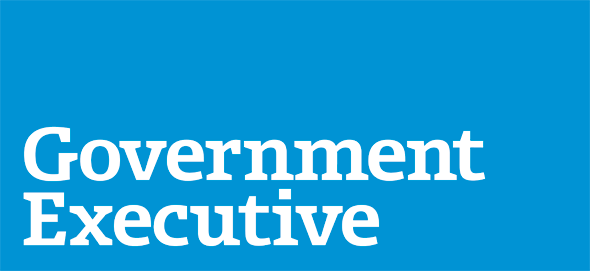
GAO Rules Air Force’s Past Performance Evaluation to be “Irrational”

The Government’s evaluation of bidders’ past performances sometimes seems murky. In submitting their proposals, bidders are given the opportunity to put their best foot forward – to identify “relevant” past performance and objective assessments of how well they performed the work. But what if the Government ignores the past performance submissions and uses something else to evaluate past performance? That’s what happened to JMark Services in a bid to provide intelligence instructor services for the Air Force.
SOURCE: GAO Rules Air Force’s Past Performance Evaluation to be “Irrational”
GAO Disagrees with SBA: Consolidation Analysis Not Required for BPAs

No, the government isn’t trying to figure out how it can bundle home and auto coverage to save on its insurance premiums. Instead, “consolidation” in the federal government contract context refers to the action of collecting requirements being performed under discrete small business set-aside contracts into a single procurement. Before an agency may consolidate contracts, it must consider the impacts the proposed consolidation will have on small business participation. Recently, however, GAO was asked to determine whether consolidation analyses are required for Blanket Purchase Order (“BPA”) procurements, and its decision did not adopt the SBA’s position.
SOURCE: GAO Disagrees with SBA: Consolidation Analysis Not Required for BPAs
Federal Contract Spending Grew 9% in 2018, Increasing for the Third Straight Year – Government Executive

Agencies spent $559 billion on prime and unclassified contracts.
GSA Violated Procurement Regulations in Awarding Contracts

McKinsey and Company offers management consulting services to improve performance issues related to strategy, organization, operations, and business technology under a GSA Multiple Award Contract. Between 2006 and 2019, McKinsey collected almost $1 billion dollars under the contract.
SOURCE: GSA Violated Procurement Regulations in Awarding Contracts
Schedule 70 vs. Tier Three IT Best-in-Class. Who Wins?

As the U.S. Government continues to migrate its purchasing and procurement needs around Category Management, there has been an increasing trend among federal agencies to focus on using “Best-in-Class” vehicles as their primary means to procure goods and services. This approach focuses on using existing GWAC and IDIQ contracting vehicles as a more efficient, streamlined, and cost-effective means to procure the solutions necessary to meet their mission. While this approach is supported by many federal agencies and those government contractors that maintain those vehicles, there are opponents who oppose this practice arguing that it limits the competitive landscape for those contractors, especially those who are not on one of the Tier Three Best-in-Class contracting vehicles due to vehicle age or restrictions introduced during the bid process. The objective of this white paper is to inform federal agencies on how using Schedule 70, currently a Tier Two IT Best-in-Class contract, allows them more flexibility, increased competition, and more options to compete their requirements.
Source: Schedule 70 vs. Tier Three IT Best-in-Class. Who Wins?
GAO Examines Requirements for Sole-Source Contracts

Sole-source awards can make many contractors feel left out of the loop of the procurement process. GAO in the past has upheld that sole-source contracts are allowable so long as the agency has a reasonable justification for the sole-source contract. Recently GAO re-examined what constitutes a reasonable “justification and award” for a sole-source contract.
GAO previews upcoming changes to next FITARA scorecard criteria

Agencies received mixed scores in the most recent Federal IT Acquisition Reform Act (FITARA) scorecard, with five agencies posting higher scores and another five posting lower scores than last year. But the team behind the scorecard at the Government Accountability Office said changes are in the works for the next IT modernization rubric.
Source: GAO previews upcoming changes to next FITARA scorecard criteria
Do Incumbent Contractor Possess an Unfair Advantage for Follow-on Work?

Earlier this year, the Navy solicited bids for custodial services at its Portsmouth Naval Shipyard. The solicitation required pricing for labor to include health benefits for employees and their families based on a collective bargaining agreement between the incumbent contractor and a workers union.
SOURCE: Do Incumbent Contractor Possess an Unfair Advantage for Follow-on Work?
GAO: Agencies Must Explain Cost Realism Evaluation Determinations

GAO recently held in ATA Aerospace, LLC, B-417427 (July 2, 2019) that agencies are required to explain how offerors’ proposed labor hours and prices are, or are not, in line with historical data from predecessor contracts when conducting cost realism evaluations.
SOURCE: GAO: Agencies Must Explain Cost Realism Evaluation Determinations
VIP Webinar: Proposal Best Practices in the FY Q4: Developing Proposals Quickly Without Sacrificing Quality

In this webinar, Olessia Smotrova will answer your questions about proposal writing in the fourth quarter of the government fiscal year. You may be pressed for time because you are responding to multiple proposals simultaneously or your deadlines are short because the government wants to obligate money fast.How do you win despite a shortage of time and resources?






